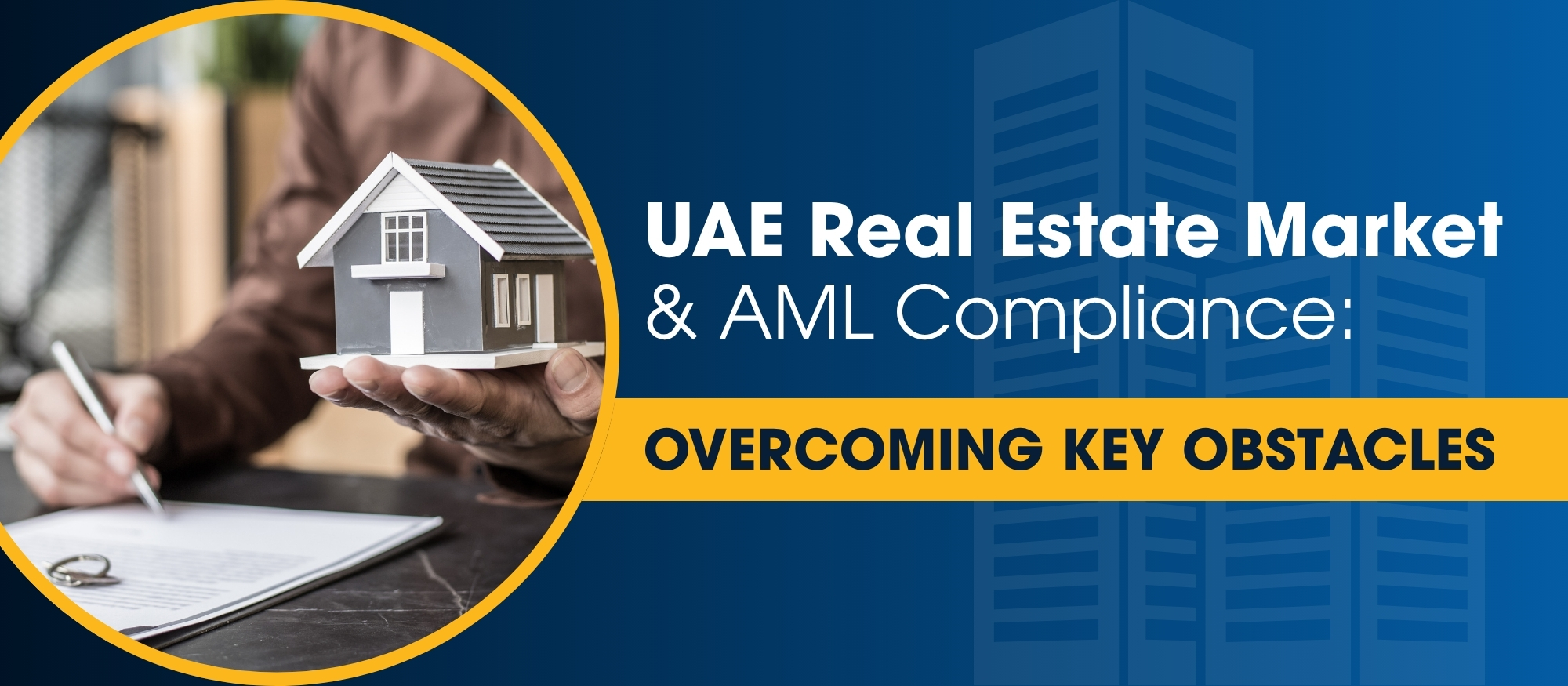The UAE’s real estate sector is a significant contributor to the economy and attracts the likes of both local and international investors. The high-value nature of property transactions though, makes the industry susceptible to financial crimes – including money laundering. As a result, AML Compliance has become imperative for real estate brokers.
Navigating AML compliance presents multiple trade-offs for brokers (from ensuring transparency to managing operational challenges). This post explores the key AML compliance obstacles faced by real estate professionals in the UAE and provides insights on overcoming them.
Understanding the AML Compliance Challenges
1. Customer Due Diligence (CDD)
Verifying the identity of clients is fundamental in mitigating financial risks. Brokers must conduct thorough background checks, assess the legitimacy of funds, and identify politically exposed persons (PEPs). These steps prevent illicit financial activities but often require a fine balance between compliance and customer experience.
Many brokers now turn to AML Compliance Companies in Dubai to streamline their compliance needs and avoid regulatory pitfalls.
2. Identifying Beneficial Ownership
Many real estate transactions involve complex ownership structures, where the actual beneficiary may not be immediately visible. Brokers must dig deeper to identify ultimate beneficial owners (UBOs) to prevent property purchases from being used as a means to launder illicit funds.
How Compliance Services Help: Working with AML consultants in Dubai can help in developing reliable risk assessment protocols
3. Continuous Monitoring of Transactions
AML compliance doesn’t end after the initial verification process. Real estate firms must implement systems that track client activities over time, identifying suspicious transactions and unusual financial patterns. The challenge lies in setting up monitoring mechanisms that do not disrupt day-to-day operations.
4. Reporting Obligations
Regulations mandate that brokers report any suspicious transactions to the UAE’s Financial Intelligence Unit (FIU). Failure to report can result in hefty fines and reputational damage. However, recognizing and categorizing suspicious transactions requires expertise and constant regulatory awareness.
5. Training and Awareness
AML compliance is not just the responsibility of compliance officers; it extends to all employees handling financial transactions. Regular training programs are imperative to help brokers and their teams stay updated on evolving AML regulations and best practices.
6. Record-Keeping and Documentation
Regulatory authorities demand that brokers maintain accurate and detailed records of client transactions. This involves preserving data on buyer profiles, source of funds, and transaction details for several years. Implementing a robust documentation system is key to seamless compliance but can be resource-intensive.
7. Technology Integration
Advanced digital tools, including AI-powered compliance software and blockchain technology, can streamline AML processes. However, adopting these solutions requires investment, technical expertise, and integration with existing business models.
8. Adapting to Regulatory Updates
The UAE’s AML regulations are continuously evolving to address emerging threats. Real estate brokers must stay updated on changes in compliance requirements to avoid penalties and safeguard their business reputation.
Overcoming AML Compliance Challenges in Real Estate
Engage AML Consultants in Dubai
Partnering with experienced AML consultants in Dubai helps brokers navigate compliance complexities. These experts offer services that align with business operations while adhering to regulatory standards.
Utilize AML Compliance Services in Dubai
Utilizing specialized AML compliance services in Dubai allows brokers to outsource critical tasks such as due diligence, transaction monitoring, and regulatory reporting. This reduces the burden on in-house teams while enhancing compliance efficiency.
Implement Strong Internal Policies
Having a clear internal framework for AML compliance is non-negotiable. This includes setting up defined reporting channels, monitoring systems, and risk assessment protocols to detect and prevent financial crime.
Regular Employee Training
A well-trained workforce is a key asset in AML compliance. Conducting frequent workshops and practical training sessions equips employees with the knowledge needed to detect suspicious activities and act accordingly.
Establish Strong Record-Keeping Practices
Maintaining an organized database of transaction records ensures transparency and simplifies regulatory audits. Digital documentation solutions can help streamline this process.
Final Thoughts
UAE real estate brokers operate in a high-stakes environment where AML Compliance is an unavoidable aspect of their profession. While challenges exist, implementing strategic measures and collaborating with AML compliance companies in Dubai can make a significant difference.
If you’re looking for AML registration UAE solutions, consulting industry experts like Elevate Accounting & Auditing is the most effective way to remain compliant and secure.

